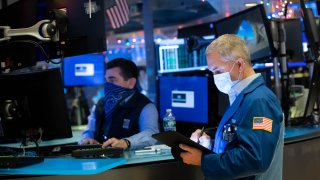
Here's the most important news, trends and analysis that investors need to start their trading day:
- Dow set to rise after November jobs report
- Slowest pace of jobs growth since April
- Pelosi, McConnell resume stimulus talks for first time in months
- Pfizer's vaccine supply cut due to raw material issues
- California puts regional lockdowns back in place
1. Dow set to rise after November jobs report
The Dow was set to rise about 75 points at Friday's open after the government's monthly employment report and after the 30-stock average finished within 77 points of its late-November record closing high. Thursday's rally faded in the last hour of trading after The Wall Street Journal reported that Pfizer cut its Covid-19 vaccine rollout target because of supply problems. The Nasdaq hit an all-time intraday high. While also pulling back late in the session, the index did manage to also close at a record. The S&P 500, after hitting an all-time intraday high Thursday, closed slightly lower. The index closed at a record on Tuesday and Wednesday.
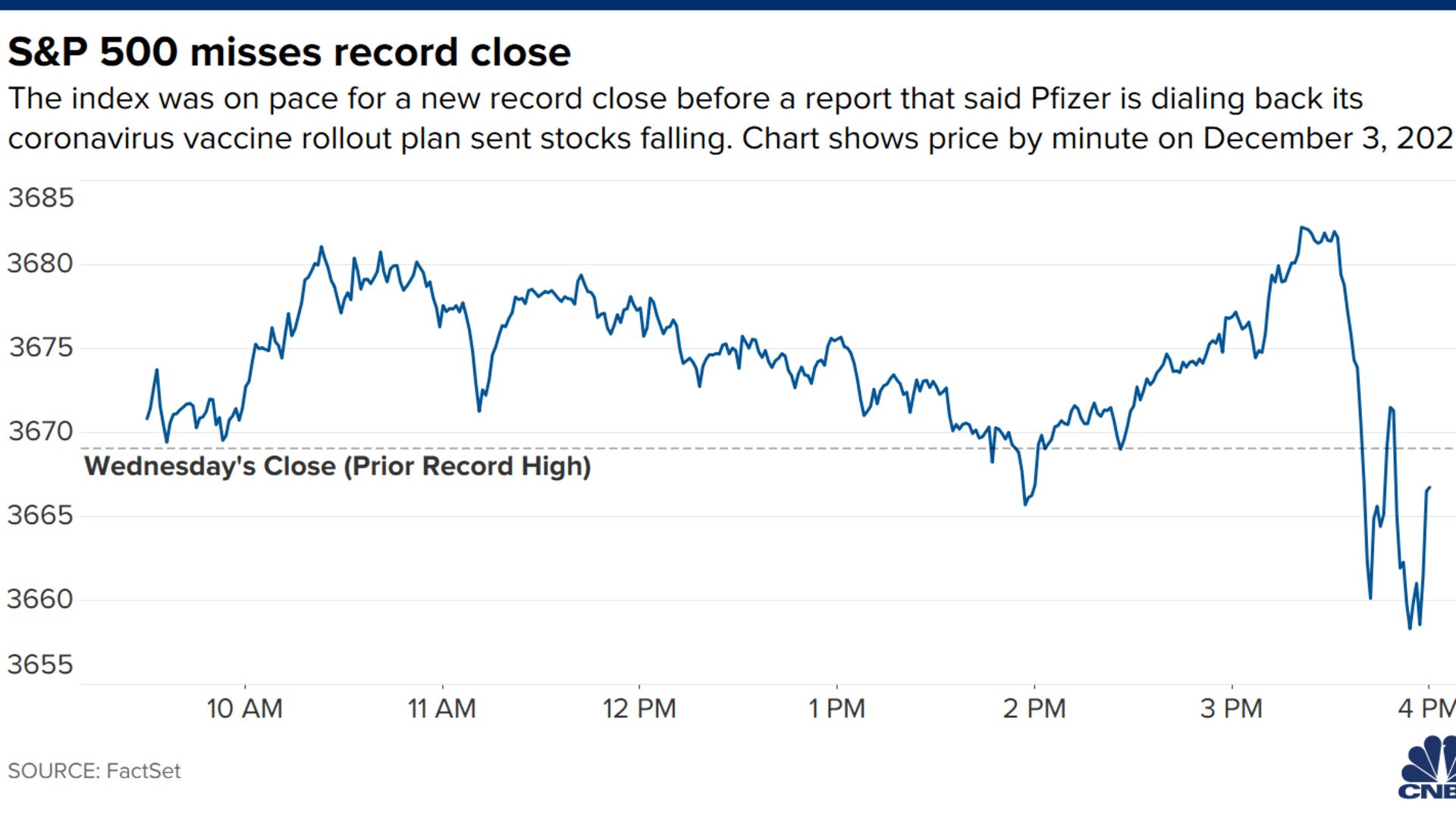
2. Slowest pace of jobs growth since April
Money Report
The Labor Department on Friday reported the slowest pace of nonfarm payroll growth since April's record job losses of 20.5 million. The U.S. economy added a fewer-than-expected 245,000 jobs last month. The stumble comes as new shutdowns by state and local governments emerge in hopes of halting the record spread of Covid-19. However, the nation's unemployment rate in November dropped to 6.7% from 6.9%, as expected.
3. Pelosi, McConnell resume stimulus talks for first time in months
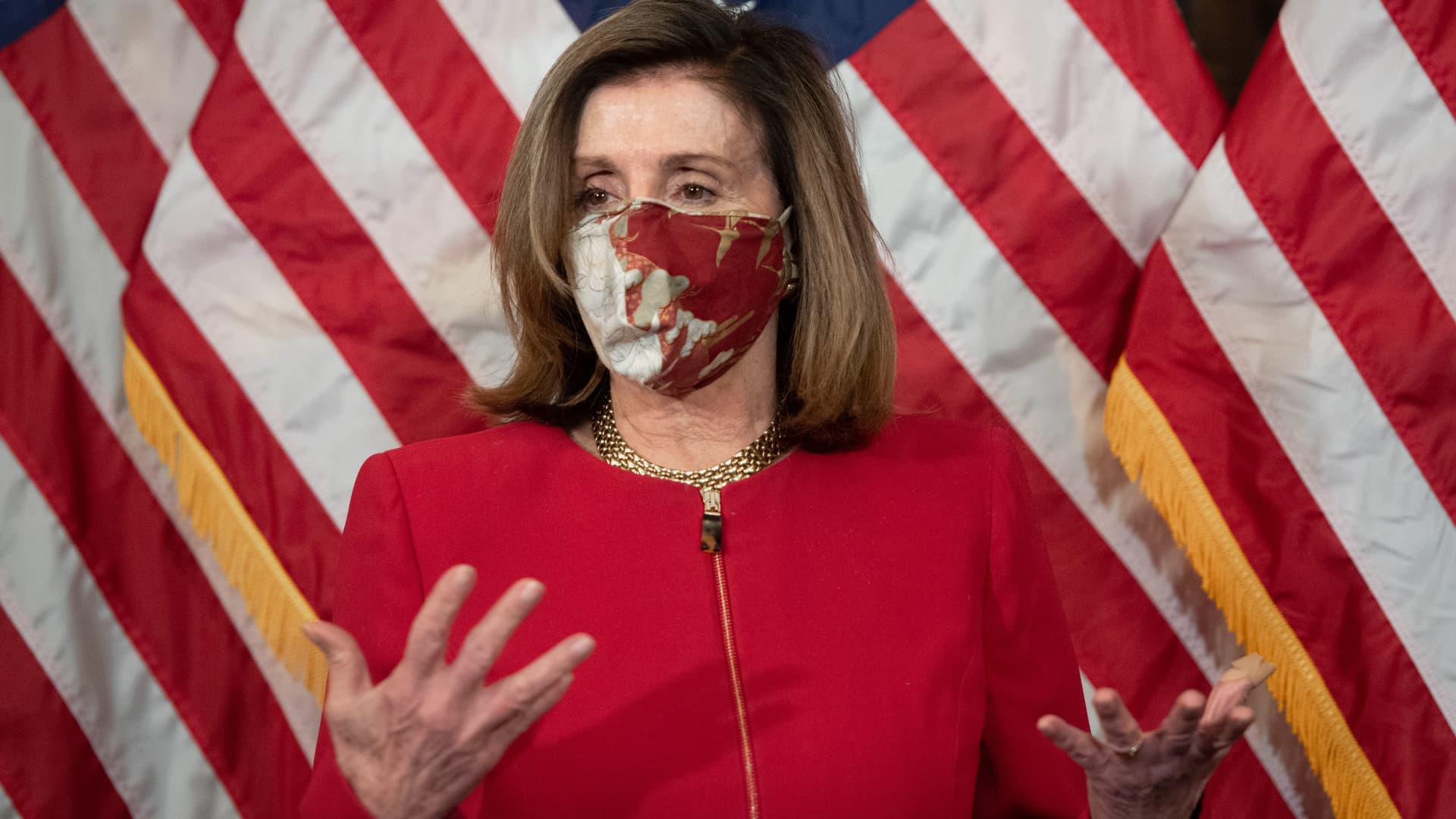
House Speaker Nancy Pelosi and Senate Majority Leader Mitch McConnell have resumed Covid-19 stimulus negotiations in an attempt to break a monthslong logjam. McConnell, R-Ky., said Thursday he sees "hopeful signs" for reaching a relief agreement before the end of the year. Pelosi, D-Calif., and Senate Minority Leader Chuck Schumer, D-N.Y., on Wednesday backed a bipartisan $908 billion stimulus package, while McConnell released his own roughly $500 billion plan. President-elect Joe Biden endorsed the bipartisan bill, calling it "a good start," in a CNN interview Thursday.
4. Pfizer's vaccine supply cut due to raw material issues
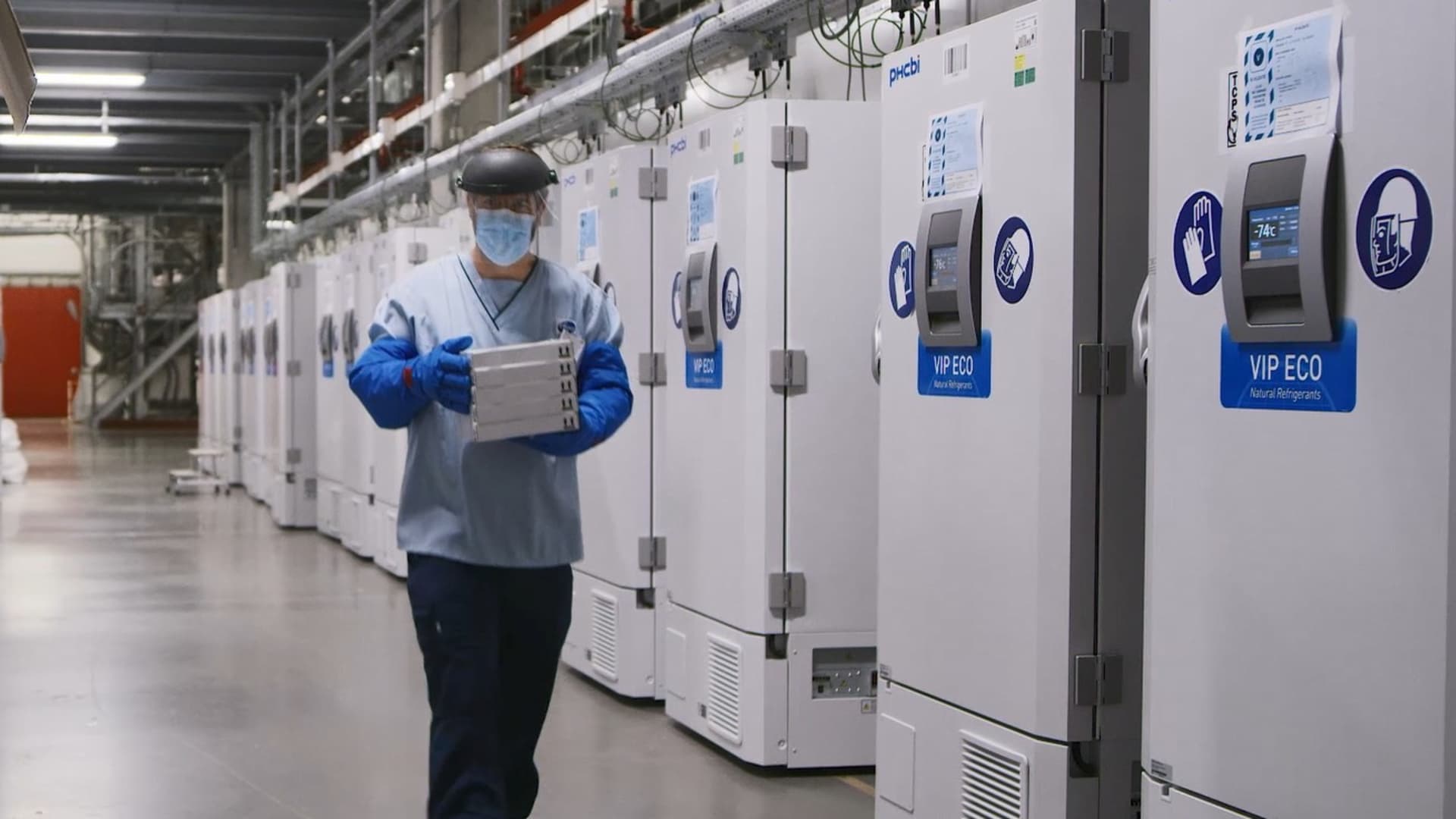
Shares of Pfizer were under some under pressure again Friday, one day after The Wall Street Journal reported that the U.S. drugmaker expects to ship half of the Covid-19 vaccine it had planned for 2020 due to some early batches of raw materials failing to meet its standards. Pfizer plans to ship 50 million doses by year-end, down from the original 100 million, the Journal said. Pfizer, which partnered with Germany-based BioNTech on the vaccine candidate, has actually repeatedly said publicly that it planned to ship 50 million vaccine doses this year and up to 1.3 billion doses by the end of 2021. Still, Pfizer's stock dropped nearly 2% on Thursday.
5. California puts regional lockdowns back in place
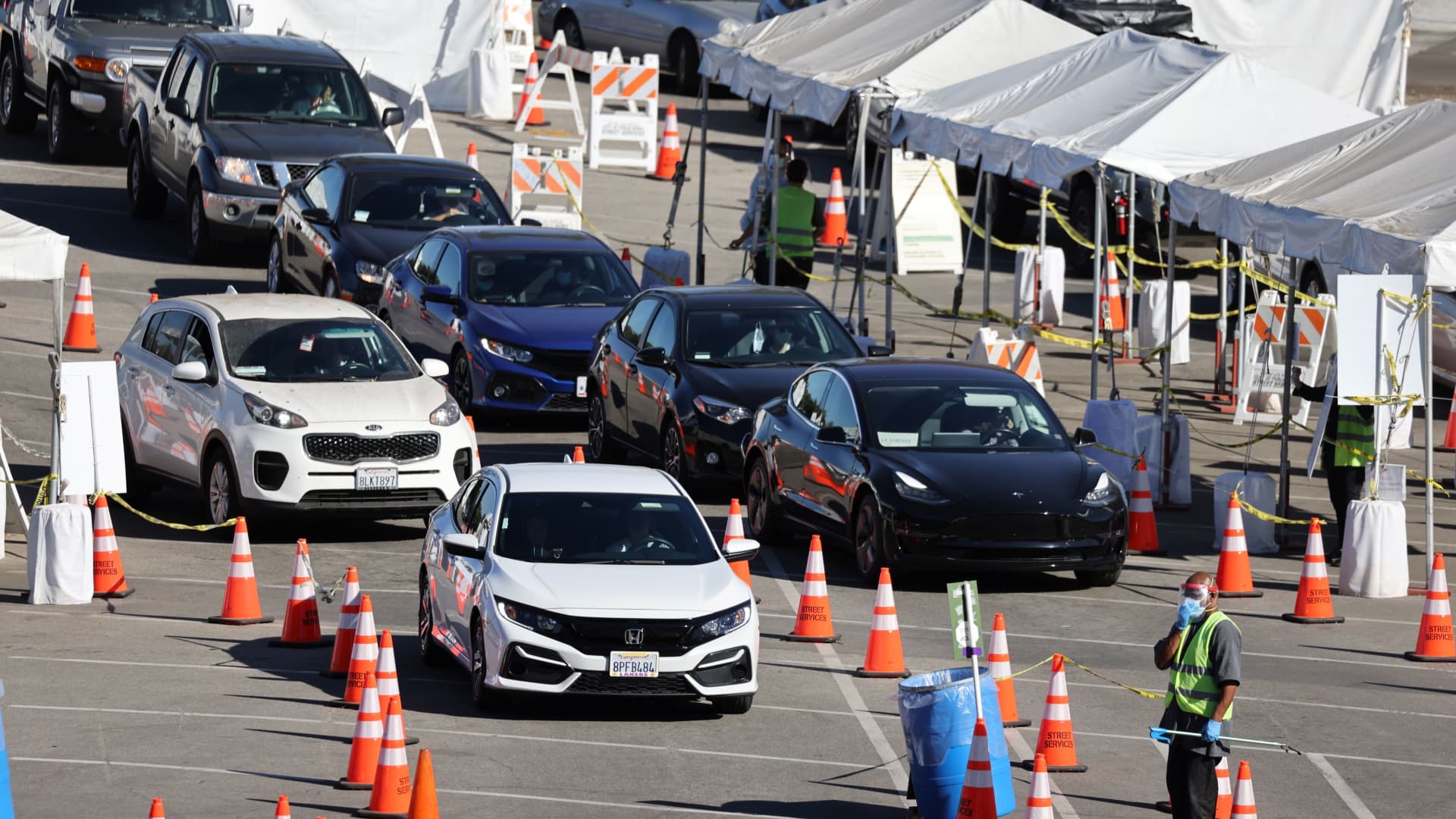
As the nation faces record new Covid-19 cases, deaths and hospitalizations, California announced a limited stay-at-home order for certain regions of the state where infections strained intensive care units. Democratic Gov. Gavin Newsom said Thursday that the three-week order requires bars, wineries, personal services, hair salons and barbershops to temporarily close, while it allows some schools and critical infrastructure to remain open. Retail stores can operate at 20% capacity and restaurants can offer take-out and delivery, Newsom added.
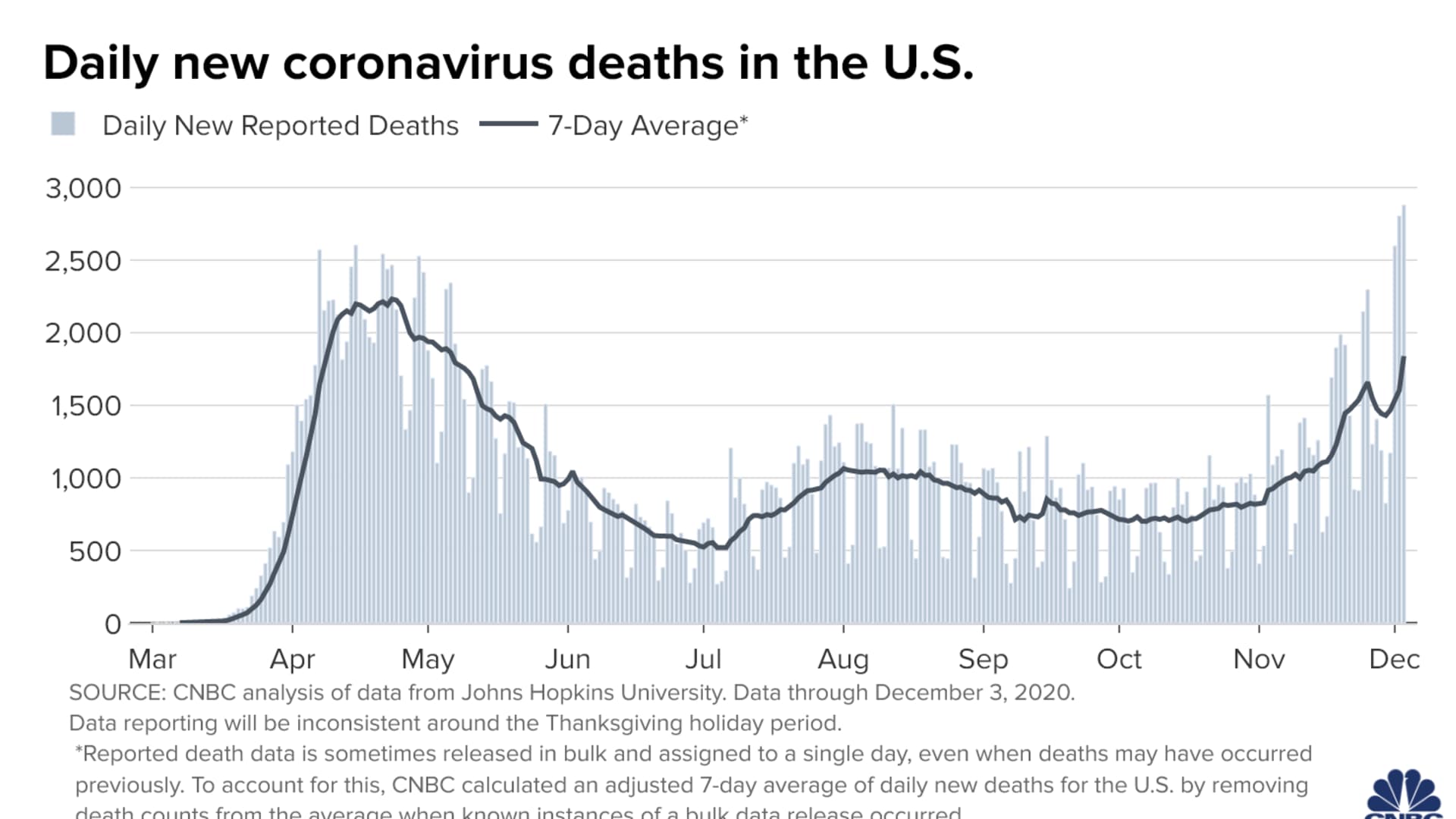
The U.S. on Thursday logged a second record day of coronavirus deaths over 2,800 and the worst-single day of new cases of 217,664. The seven-day average of new daily cases of 179,473 was also a record. As of Thursday, 100,667 people were hospitalized with Covid-19, the most of the pandemic.






